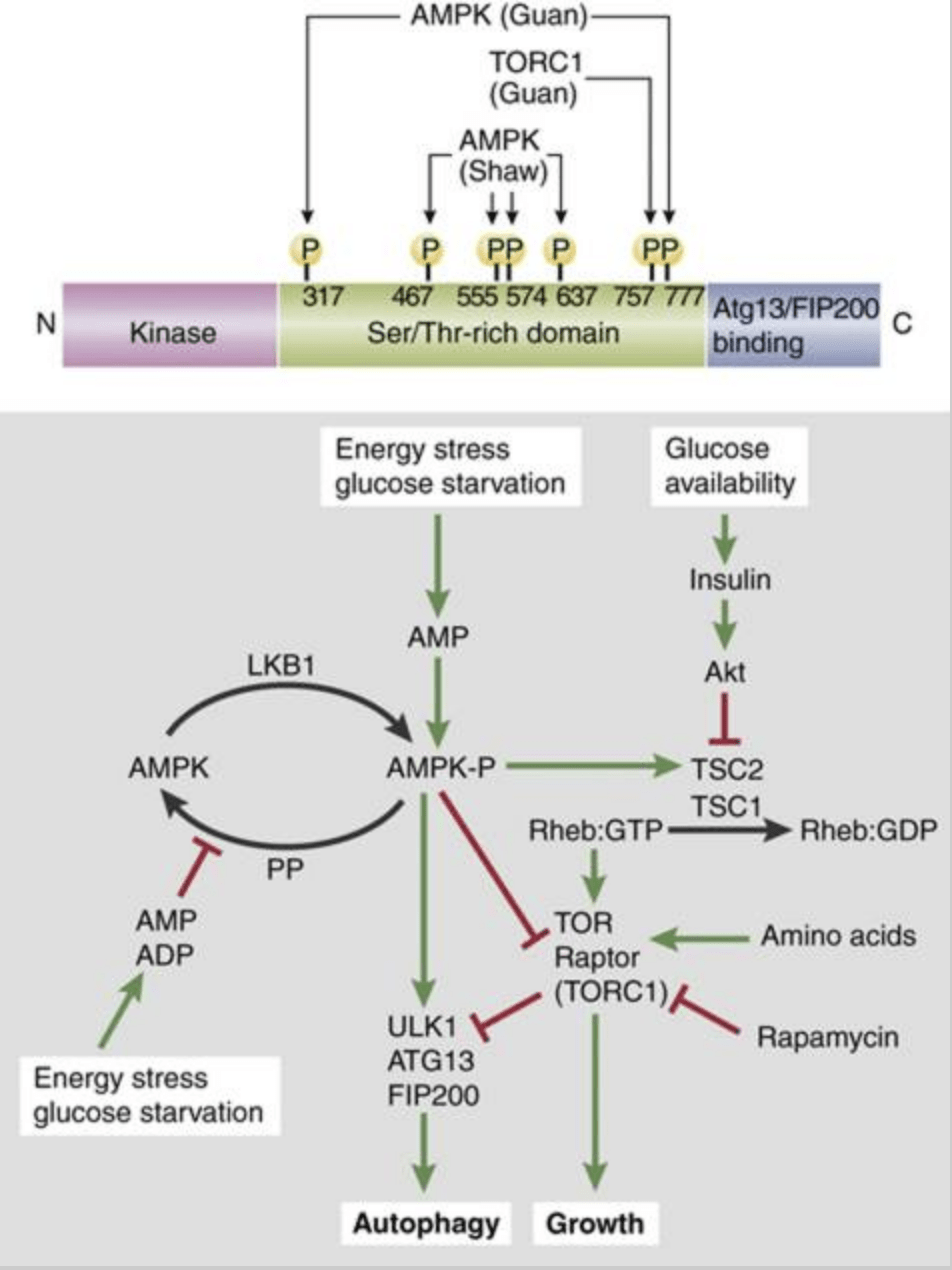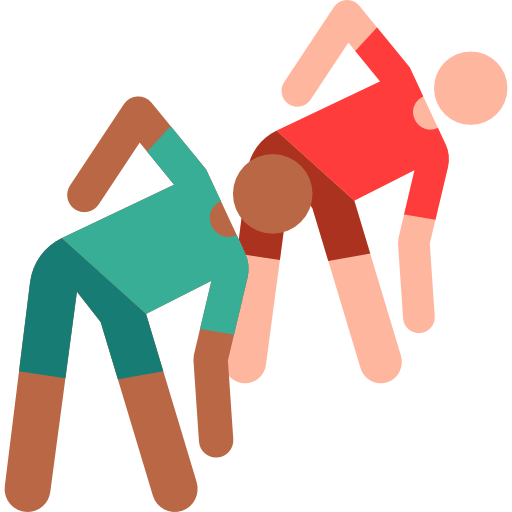Detoxes and full-body cleanses have never been more popular, but do they actually work?
Such quick fixes promise a complete cleansing of toxins to promote everything from weight loss to glowing skin to even a longer life.
But these short-term, so-called “cleanses” don’t really do much beyond depriving your body of essential nutrients.
The good news is each one of our bodies already has the ability to cleanse itself—all the way down to the cellular level.
This automatic process is called autophagy and it works when the body is in a fasted state.
Here, we’ll be looking at what autophagy is, how it works and why it may be the only way to really cleanse your body.
What is Autophagy?

Greek for “self-eating,” autophagy is a natural cleansing process in the body that allows cells to essentially “eat” themselves.
Researchers believe this process evolved as a response to stress. Indeed, while autophagy is always active behind the scenes, it kicks into high gear during times of stress—especially that of starvation.
When cells are starved, they begin to digest and recycle their own proteins and other important molecules to be used for fuel and to regenerate new, healthy cells.
As they recycle and renew these valuable parts, they also discard any toxic waste products, pathogens or dead or damaged components.
This helps clear the body of toxins and damaged cells, all which contribute to aging, inflammation and increased risk of chronic disease.
In fact, autophagy is essential to our survival—cells would not thrive or survive without it.
Even more so, it’s essential to staying young and healthy. Unfortunately, the autophagy response tends to decrease as we age. The key to longevity may then be in increasing our cells’ autophagic ability.
One study to support this found that the cells of long-living individuals (people age 100 and over) showed higher rates of autophagy than younger seniors (at 75 years old) (1).
Several other studies have shown links between autophagy defects, aging and degenerative diseases like Parkinson’s, Alzheimer’s and even cancer (2, 3, 4).
How Autophagy Works in the Body
The basic idea of autophagy has been known for sometime, but only in the last few decades have researchers been able to figure out exactly how it works.
In fact, just in 2016, Japanese Dr. Yoshinori Ohsumi won a Nobel Prize for Physiology or Medicine for his groundbreaking autophagy research.
In his studies, Dr. Ohsumi used starvation to activate autophagy. He discovered specific genes involved in the regulation of autophagy.
The process itself is quite intricate, but one of its major players is an enzyme known as AMPK.
AMPK is activated by ADP and AMP, molecules that signal when the energy of a cell is compromised—either from stress or starvation. When this happens, autophagy is activated as well (5).

Energy stress and glucose starvation activate AMPK, which triggers autophagy (5).
The other major player is mTOR (mammalian target of rapamycin), which is needed for cell growth and protein synthesis. It also activates insulin receptors.
However, opposite to AMPK, mTOR actually inhibits autophagy. So, you’d want to decrease mTOR, which also happens through nutrient deprivation.
The amino acid leucine, which is contained in nearly all proteins, is also a key regulator of autophagy. Namely, when leucine levels in the blood drop, autophagy kicks in (6).
Simply put, the easiest and fastest way to kick-start autophagy is by depriving your body of nutrients.
Summary: Autophagy is a natural cleansing process in the body that allows cells to “eat” themselves. When this happens, cells recycle their essential parts to help make new, healthy cells, while ridding of toxic waste products and damaged parts. The life-protecting process kicks into gear when the body is starved or stressed and may be the key to a long, healthy life.
Autophagy and Intermittent Fasting

One of the most documented ways to activate autophagy is via fasting or intermittent fasting.
Intermittent fasting (IF) is a more accessible form of fasting that involves set periods of time in which you eat and fast.
One of the more popular forms of IF is the Leangains Method (also called 16:8 method), which involves 16 hours of fasting, leaving you with an 8-hour eating window daily (e.g. eating between 12pm and 8pm).
This method may be enough to boost autophagy. In general, once you’ve depleted the glycogen stores in your liver, AMPK is activated, mTOR is suppressed and autophagy kicks in (7).
Some of you may know this as being in the beginning stages of ketosis. For some people, this can start to happen within as little 12-16 hours of fasting.
But for maximum autophagy levels, the sweet spot appears to be somewhere between 24 and 48 hours of fasting (8, 9).
In general, the research on how often this type of fasting should be done is unclear, and it’s not exactly ideal for most bodies.
On top of that, IF can be problematic if done incorrectly and in higher risk individuals. In particular, it can cause hormonal imbalances in women. Read here for more possible risks of following an IF regimen.
For the record, while a juice cleanse or detox will severely cut your calorie intake, it will actually inhibit you from boosting your cells’ autophagic activity.
This is because you’re still consuming calories and nutrients if you’re drinking juice.
Summary: The most proven way of activating autophagy is via fasting or intermittent fasting. Some evidence has shown that maximum autophagy levels will occur somewhere between 24 and 48 hours of fasting.
Autophagy and Exercise

Just as fasting puts stress on the body in order to induce autophagy, exercise does as well.
One study on mice concluded that 95 minutes of exercise induced autophagy in the cerebral cortex of the brain.
They also found that mice who spent just 30 minutes on a treadmill showed autophagic activity, which reached a plateau at 80 minutes (10).
In humans, it’s much harder to determine exactly how long and hard you need to exercise to induce autophagy. Of course, your diet and nutrition status before, during and after exercise will also influence autophagy (11).
But it does seem that high-intensity interval training (HIIT) may be more beneficial than moderate-intensity continuous training in boosting autophagy.
According to one recent study, HIIT was more effective in increasing autophagy in cardiac and skeletal muscle cells (12).
Summary: Putting stress on the cells via exercise can also trigger autophagy. High-intensity interval training (HIIT) may be more effective than longer, moderate-intensity exercise in increasing autophagy.
Benefits of Autophagy

Various studies have discovered a number of benefits related to autophagy and its role in fueling and cleansing cells, promoting the growth of new cells, and clearing out damaged cells.
Specifically, autophagy has the potential to:
- Improve cognitive function, brain structure and neuroplasticity by promoting growth of brain and nerve cells (8, 13)
- Protect against cardiovascular disease. However, this could be the case only within a certain range (too low or too high levels of autophagic activity could be potentially harmful (14).
- Boost the immune system (15)
- Reduce inflammation and protect against inflammatory diseases (16)
- Lower risk of neurodegenerative disease like Alzheimer’s and Parkinson’s disease (17)
- Potentially protect against cancer (18, 19)
- Slow down aging (20, 21)
This last point is perhaps most fascinating. In its role in promoting healthy cells, protecting the cardiovascular, immune and metabolic systems, and reducing inflammation, autophagy is an essential requirement for longevity.
That said, this process is rather complex, and knowing exactly how much autophagic activity is optimal is still unknown, and likely highly dependent on the individual.
In fact, too much autophagy could be detrimental. One study found that high levels of cellular autophagy can trigger autosis (cell death) (22).
Summary: Autophagy is essential to our survival, but it does decrease as we age. Boosting autophagy has the potential to strengthen the brain, heart, and immune system, and protect against inflammation, neurodegenerative diseases, and even cancer. All of this can is crucial to supporting longevity.
How to Really “Cleanse” Your Body via Autophagy
While a detox or juice cleanse may help clean out your colon for the short-term, it’s not really “cleansing” your body—certainly not in the way autophagy does.
Autophagy is a natural cleansing process that allows cells to recycle their proteins and other essential parts to help make new, healthy cells, while ridding of toxic waste products and damaged parts.
It basically cleans out your body’s toxins, pathogens and damaged molecules at the cellular level, making way for strong, healthy cells. It’s the ideal “cleanse.”
Autophagy is essential to our survival, and is triggered when the body is stressed or starved. However, its activity level tends to decrease as we age.
That said, it’s possible to boost autophagy to take advantage of its crucial role in protecting the brain, heart, immune and metabolic systems, as well as decreasing inflammation and the risk of neurodegenerative diseases.
Fasting, including intermittent fasting (IF), is one of the key ways to kick-start autophagy. But IF may not be ideal for everyone, especially women, who may experience hormonal imbalances.
Another proven way to boost autophagy is through exercise, possibly more effectively via high-intensity interval training (HIIT).
Overall, we know that autophagy is a crucial part of our survival and closely connected to longevity, but how much of it and how much we should work to boost it—especially as we age—is still unknown. And it all likely differs by individual.
This means it’s probably best to look at the big picture. Rather than try to “hack” your body at the cellular level, focus more on a strong and sustainable diet and exercise plan that works for you. This will inevitably promote longevity anyway.
If anything, at least we know that the body is already working hard to cleanse itself, so there’s no need to struggle through another juice cleanse or expensive “detox” program ever again.
